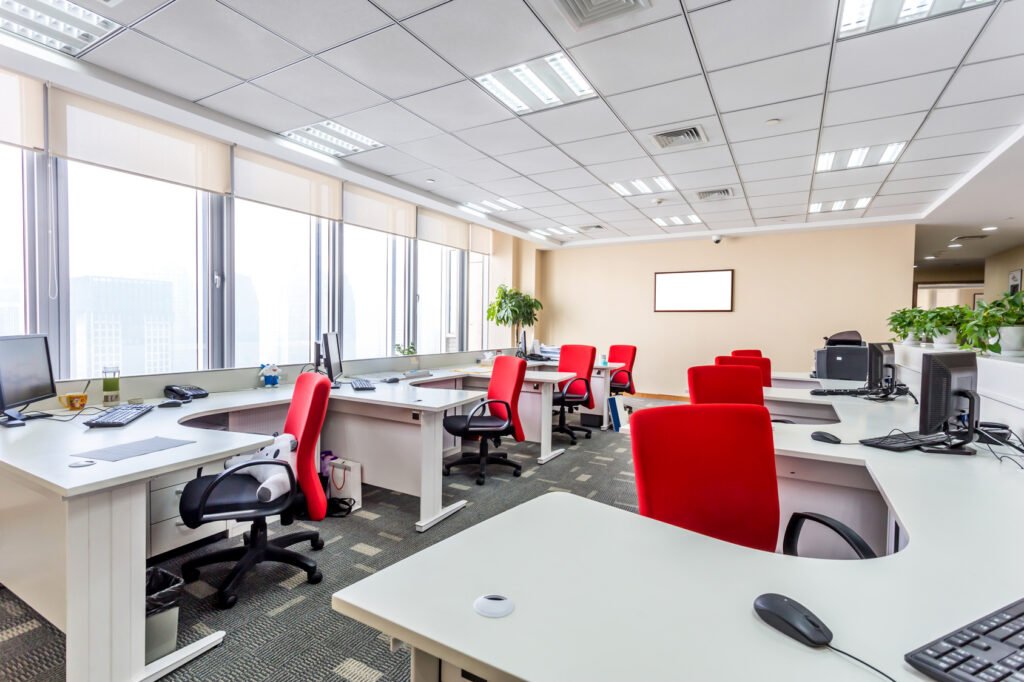Finding the perfect space for your small business can be a game-changer for your operations and growth. Whether you’re starting a new travel or expanding an existing one, the right space can significantly impact your productivity, team morale, and overall success. With a range of options available, from coworking spaces to private offices, it’s crucial to understand what best fits your needs and budget.
As businesses more and more shift to remote or hybrid models, the demand for flexible office solutions has surged. Finding a small office space for rent near you not only ensures convenience but also allows you to be part of a local business community. This guide will help you navigate the essentials of renting small business space and provide practical tips for finding the ideal location to support your business goals.
Understanding Small Business Space Rental
What is Small Business Space Rental?
Small business space rental refers to leasing a commercial property tailored to the needs of smaller enterprises. These spaces can range from shared cowering environments to fully private offices, each offering different levels of flexibility and amenities. Renting such a space allows businesses to focus on their core operations without the burdens of owning property, which includes maintenance and upfront costs.
These rental options are designed to accommodate various business sizes and types. Coworking spaces offer shared facilities and networking opportunities, while private offices provide more privacy and control. Understanding these options helps you choose the best setup for your business’s needs and growth.
Why Rent Small Business Space?
Renting small business space offers several advantages, particularly for startups and growing companies. One key benefit is flexibility; you can scale up or down based on your business’s needs without the long-term commitment of purchasing property. Additionally, renting often comes with lower initial costs compared to buying, freeing up capital for other crucial business expenses.
Another significant advantage is access to essential amenities and services that might be cost-prohibitive if you were setting up your own space. From high-speed internet and meeting rooms to on-site support staff, these features can enhance your operational efficiency and contribute to a more professional image.

Factors to Consider When Renting Small Business Space
Location and Accessibility
Choosing the right location for your small business space is crucial. Proximity to clients, customers, and employees can significantly impact your business’s efficiency and accessibility. A central location that is easy to reach via public transportation or major highways ensures convenience for everyone involved. Additionally, consider the neighborhood’s safety and amenities, such as nearby restaurants, banks, and parking facilities, to enhance the overall experience for your team and visitors.
Accessibility is also about ensuring that the space is welcoming to all. Look for buildings with features like wheelchair access, elevators, and well-maintained common areas. These factors contribute to a positive and inclusive work environment, reflecting well on your business and making it more appealing to potential clients and employees.
Size and Layout
The size and layout of the space you choose should align with your business needs. Assess how much space you require for workstations, meeting rooms, and storage. A cramped office can hinder productivity and morale, while an oversized space can lead to unnecessary costs. Ideally, choose a layout that allows for flexibility and growth, such as modular furniture or open floor plans that can be easily reconfigured.
Consider how the layout impacts workflow and collaboration. Spaces with natural light, ergonomic furniture, and well-designed common areas can boost productivity and employee satisfaction. A thoughtfully designed office layout fosters a positive work culture and supports your business operations effectively.
Amenities and Services
When evaluating potential office spaces, consider the amenities and services included in the rental. Common amenities such as high-speed internet, conference rooms, and kitchen facilities can greatly enhance your day-to-day operations. Some office spaces also offer additional services like reception support, mail handling, and cleaning, which can save you time and resources.
Think about what specific amenities are essential for your business. For instance, if you frequently hold meetings, a well-equipped conference room is crucial. Similarly, having a reliable IT infrastructure can prevent downtime and keep your business running smoothly. The right mix of amenities can make your office space more functional and convenient, allowing you to focus on your core business activities.

Finding Small Office Space for Rent Near You
How to Search for Local Office Space
Searching for local office space can be straightforward with the right approach. Start by using online platforms like commercial real estate websites and local classifieds, which often have detailed listings with photos, amenities, and pricing information. Websites like Craigslist, LoopNet, and CoStar are excellent resources to begin your search. Additionally, explore social media groups and forums where local business owners share tips and listings.
Networking is another powerful tool. Attend local business events, join your local Chamber of Commerce, or participate in industry-specific meetups. These connections can lead to insider knowledge about available spaces or upcoming vacancies. Personal recommendations from fellow business owners can also provide valuable insights into the best locations and landlords.
Evaluating Potential Spaces
Once you’ve identified potential spaces, schedule site visits to evaluate them firsthand. Pay attention to the overall condition of the building and the specific office space. Look for any signs of wear and tear, and check the functionality of essential systems like heating, air conditioning, and internet connectivity. Ensure that the space meets your requirements for layout, size, and amenities.
During your visit, ask the landlord or property manager important questions. Inquire about the terms of the lease, any additional costs such as maintenance fees or utilities, and the process for handling repairs and maintenance issues. Understanding these details upfront can help you avoid unpleasant surprises later and ensure that the space aligns with your business needs and budget.
Tips for a Smooth Rental Process
Lease Agreements and Terms
Understanding the lease agreement is critical to ensure a smooth rental process. Carefully review the key elements, such as the lease duration, rent amount, payment schedule, and renewal options. Pay attention to clauses regarding maintenance responsibilities, utilities, and any additional costs that might arise. It’s wise to seek legal advice to clarify any complex terms and ensure your interests are protected.
Negotiating terms can also be beneficial. Discuss the possibility of flexible lease terms, such as shorter durations or options to expand the space if needed. Additionally, inquire about potential discounts or incentives for signing a longer lease. A well-negotiated lease can provide stability and save costs, giving your business the best chance to thrive.
Preparing for Move-In
Preparing for the move-in process ensures a seamless transition to your new office space. Start by creating a detailed checklist that includes all the necessary steps, such as arranging for utilities, internet setup, and office furniture delivery. Communicate with the property manager to confirm move-in dates and any specific building regulations you need to follow.
Setting up your new office efficiently is also crucial. Plan the layout in advance to maximize space utilization and create a comfortable work environment. Consider ergonomic furniture and proper lighting to enhance productivity. Additionally, ensure all technology and equipment are installed and tested before the move, so your business can operate without interruption from day one.
What should I look for in a small business space rental?
Look for a convenient location, appropriate size and layout, essential amenities, and flexible lease terms to meet your business needs.
How can I find office space near me?
Use online platforms, local business directories, and network with other business owners in your area to find available office spaces nearby.
What are common amenities included in office rentals?
Common amenities often include high-speed internet, meeting rooms, kitchen facilities, and on-site support services like reception and cleaning.
What should I review in a lease agreement?
Review lease duration, rent amount, payment schedule, maintenance responsibilities, and any additional costs or clauses related to renewals and terminations.
Conclusion
Choosing the right small business space for rent is a critical decision that can significantly influence your company’s growth and success. By understanding the various types of rental options, such as coworking spaces and private offices, and carefully considering factors like location, size, layout, and amenities, you can find a space that perfectly suits your business needs. Additionally, being diligent in reviewing and negotiating lease agreements ensures you secure favorable terms and avoid unexpected costs.
A well-planned move-in process further ensures a smooth transition to your new office, allowing your business to hit the ground running without disruptions. By following these guidelines and tips, you can create an optimal work environment that fosters productivity, enhances employee satisfaction, and supports your overall business objectives. Start your search with a clear plan, and you’ll find the perfect space to help your business thrive.




